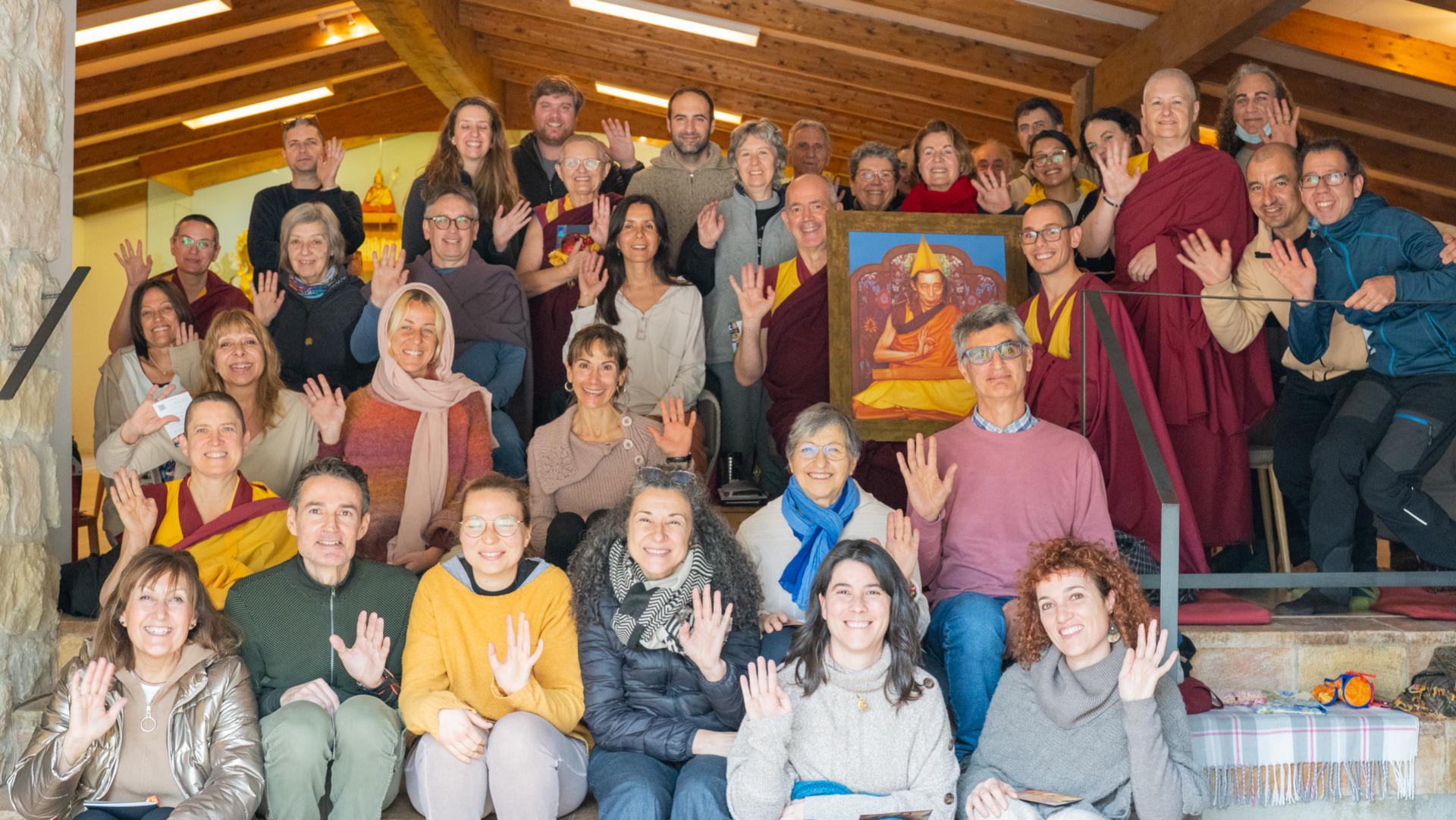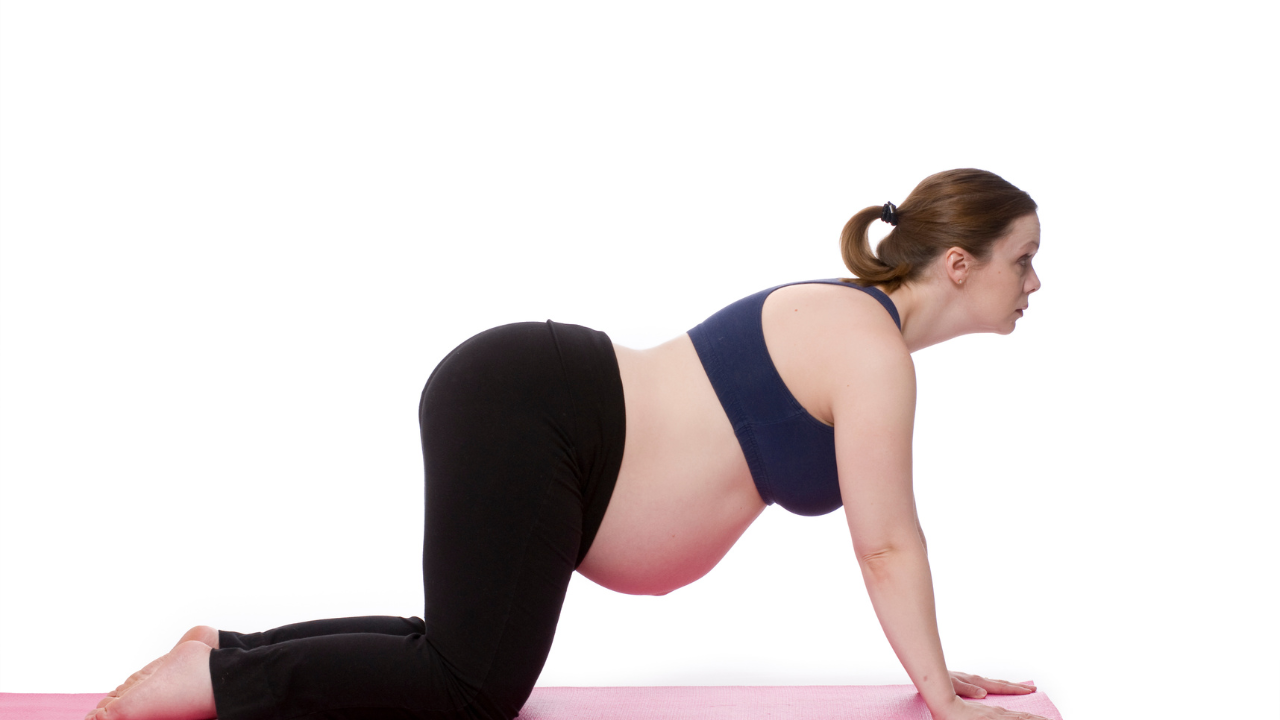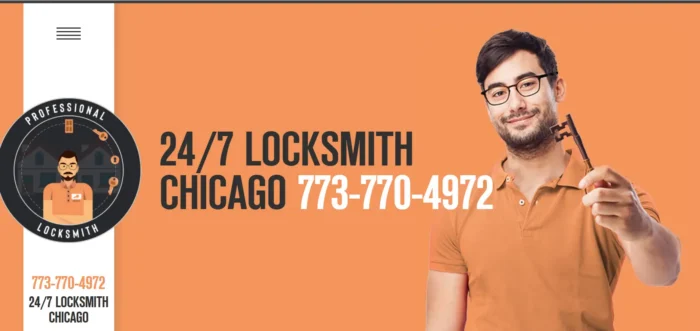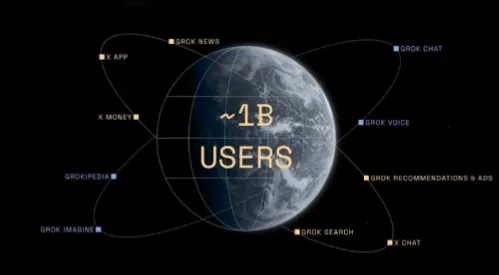Staving Off Diabetes | Steve S. | Better Man Podcast Ep. 119
Today’s guest, Mark, is a bit different than past guests—and not just because of his accent. Mark only joined Man Flow Yoga about three months ago. But he’s made a lot of progress in those three short months: He’s...

Episode 119: Staving Off Diabetes - Steve S. - Transcript
Dean Pohlman: Hey guys, it’s Dean. Welcome back to the Better Man podcast. Today’s episode is a member interview focused on reclaiming your fitness. I have Steve s here from Vermont, and we are going to be talking about how he got started with man yoga and, his story there. So Steve, thanks for doing this.
Steve S: Yeah. You’re welcome. Yeah.
Dean Pohlman: So I like to start these off just talking about kind of. What was your oh, shit moment. What was it when you realized that you weren’t where you wanted to be with your fitness, and it was time for a change?
Steve S: So when I was 27, my dad was diagnosed with diabetes. He had been at work, and he had been having issues with pain off and on, but hadn’t really got into a doctor. So he wound up falling down at work and being brought to the hospital. And he had his right leg amputated from the knee down after that.
Steve S: And we didn’t know he had diabetes. So that was the point for me where I decided I needed to just check on my health. I hadn’t been going to the doctor regularly. And I decided I wanted to just take care of it. Take better care of myself.
Dean Pohlman: How old were you at that point?
Steve S: I was 27 at that point. Okay. And my dad wound up passing away a few years later when he was 63. He had a heart attack. And again, he didn’t go to the doctor regularly. And so I just decided for my own benefit, my own health. I wanted to start going to the doctor. And just checking my bloodwork once a year and making sure they don’t have diabetes or anything else going on.
Steve S: I wound up, having high cholesterol, high blood pressure in my 30s. And that was the point where I really made the commitment to start working out. And when I first started going, I went to the gym maybe 2 or 3 times a week, but I didn’t do a lot. I did a lot of stuff on a little machine.
Steve S: A little bit with the, exercise machines, but not a whole lot of free weights. And it wasn’t until I started gaining weight and my cholesterol kept getting higher that I decided it was time to actually, like, join the exercise class. Yeah. So I started doing that. It’ll be ten years, I think, this month. And it was in 2014.
Steve S: But compared to my first class, I do that at 6 a.m. twice a week. And I also have been doing that for a while.
Dean Pohlman: Kind of as it.
Steve S: Gets a grip condition in class. Okay. Bunch of different exercises. Some days we lift weights. We push a prowler, we do the rowing machine. Sometimes it’s the whole bunch of different things, and it changes every three weeks. So you never know what you’re doing next.
Dean Pohlman: That’s great. How often do you do that?
Steve S: Twice a week. Tuesdays and Thursdays. Okay. And then I had been going to a spin class that had ended, when Covid hit, and I go and I buy the stationary bike at the gym twice a week, usually Monday and Friday, and I use either a treadmill or I take a walk on Wednesdays. Okay, cool.
Dean Pohlman: So were you when you started, when you started going to the gym and you were kind of not super serious, but, you know, doing the elliptical or doing some machines, were you also, paying attention to your diet or other factors at the time, or was it almost. Was it was it mostly focused on the exercise?
Steve S: It was mostly an exercise at that point. Okay. It wasn’t really until my cholesterol and blood pressure kept rising that I started changing my diet, too.
Dean Pohlman: Yeah. What did you do? Have you had success with that or what were some things that you did to change to change your diet?
Steve S: The most important thing was to eat a larger meal in the middle of the day instead of eating a big meal at supper time. I usually have a salad for supper, and I usually have, like, meat, but, I was not potatoes anymore, but meat. Vegetables and some sort of, like, rice or something for lunch. Okay.
Steve S: And I cut out bread quite a bit. I used to eat bread with almost every meal, and I do still have dessert sometimes, but I have it at lunch time instead of later in the day.
Dean Pohlman: Okay. So it didn’t sound like you made drastic changes to your diet. You just made a few tweaks.
Steve S: Yeah. Yeah.
Dean Pohlman: Did that feel manageable?
Steve S: Yeah, that was very manageable. Okay.
Dean Pohlman: Cool. When did you make.
Steve S: The hardest part was eating a salad and supper. Okay.
Dean Pohlman: How do you keep that interesting. Or how do you keep that. How do you keep that palatable or enjoyable.
Steve S: I’m not a big cook anyway. But for me just making a basic chicken or pork or something with a few seasonings, it works for me. Okay. And I also work in a hospital, and I frequently will have lunch at the hospital or whatever they’re having. Depending. I’ll try to plan it, but remember, the menu is for the week.
Steve S: And if I see something that I know I’m going to like, I’ll make sure I eat that that day. Got it. Okay.
Dean Pohlman: What do you what do you do with the hospital?
Steve S: Right now, I’m a mental secretary. I just got my, certified network system, certification in summer. Okay. And I’m trying to find a job doing that.
Dean Pohlman: Yeah. I remember that I remember having this conversation with you at some point or seeing seeing you talk about this at some point. That’s cool.
Steve S: Yeah. I come classes last year. It was almost it was two semesters of classes last year. Okay. Cool.
Dean Pohlman: Great. So, when you were at your how is your weight? How is your weight journey then was was weight an issue or was it just a high blood pressure? That was the issue.
Steve S: Weight has been on of an issue too. My weight actually started going up more. I have, I had both my hips replaced three years ago. And that’s the point where my weight started to go up. Because I wasn’t during the recovery, I wasn’t cooking for myself as much. And I was home alone most of the time, so it was easier just to buy, like a healthy choice meal instead of asking to make something.
Steve S: So with the sodium and the extra things there, my weight and my both work went way off the charts. Yeah. And I wound up gaining 30 pounds. I’ve dropped most of that. I dropped about 23 or 24 pounds now. And then. Okay. And I don’t know if I can get the extra weight. Awesome.
Steve S: Over 50 now. So I’m trying to get back to where I was pre surgery, but I haven’t made it quite there yet.
Dean Pohlman: You definitely can. I believe in you. And I know that it’s possible with with the right with the right things. What has helped you. What what have you noticed when you’ve been most successful with weight loss? What has what specific habits, or nutrition adjustments have been most helpful?
Steve S: I think eating, oats in the morning instead of eating like ham and eggs and a bigger breakfast. Okay. I was eating, like, Cheerios or oatmeal in the morning, and I haven’t gotten back to that yet. But that’s something I’ve been thinking about getting back to. Just to see the. Makes a difference. Got it.
Dean Pohlman: Can I ask how tall you are and what your weight is? I just want people to get a general, and I’m.
Steve S: Five, five, ten, and right now I’m about 2 or 5. Okay.
Dean Pohlman: Got it. So your ideal, it would be like one. What would your ideal shape?
Steve S: I’d like to get down to 195. Okay, cool.
Dean Pohlman: Yeah, I think that I think that’s that sounds doable to me. Do you have, what’s your what’s your plan or what have you thought about what you, what you want to do to to get there?
Steve S: I don’t know, but to do that. To get there.
Dean Pohlman: Okay. So what are you doing now? What what are the things that you’re doing right now?
Steve S: It’s mainly been the classes in the morning. And riding the stationary bike and then walking.
Dean Pohlman: Got it.
Steve S: Trying to hit at least 8000 calories. It’s a thousand steps a day, but I’m not always getting there.
Dean Pohlman: Yeah. How do you get the walks? And what’s your. What do you how do you make sure you get more steps in?
Steve S: I should walk more in the evenings. I think I try to walk at work and I don’t park next to the building as far away as I can. Okay. I try, I walk in the morning at least once a week, and then walking at night, I think, is what makes a bigger difference. And I just, I come home to my elderly cat and I don’t go out.
Steve S: And usually most night. But I know I can go out after supper and take a short walk, and that would make more of a difference.
Dean Pohlman: But your cat doesn’t like going on walks.
Steve S: No, she doesn’t like me to leave the house.
Dean Pohlman: It’s funny, I’ve seen people walk cats. It’s always interesting to me. Anyways, okay, so let’s talk about how at.
Steve S: 18 years old now. So.
Dean Pohlman: Well, wow. That’s one thing that cats have that dogs don’t longer, longer lifespans. So how does, how does mental yoga fit into. How did man for yoga start fitting into your workouts and why did you why did you go looking for something like man for yoga?
Steve S: I’m trying to remember when I first joined and it was kind of two years. I used to go to a gym class, a yoga class at the gym, and I know I stopped doing that. It was a female instructor, and I was having knee pain and hip pain. I didn’t realize that my hips were as bad as they were.
Steve S: But a lot of the poses were aggravating my joints. So I decided to look for something more geared towards men. And that was how I found men for, like, yoga online through YouTube. Originally. And I started doing it, and I bought a couple of yearbooks. And I know I joined, I know it’s pre-pandemic because I remember I put my put everything on hold, for a while when I, I went my hip surgeries in 2021.
Steve S: And I contacted, mental yoga and spoke to, I think it was Jesse, probably just over a year. Yeah. So I’m not even sure when I began, but it was basically because of the joint pain, and I thought doing more yoga, I didn’t really know what I was having for issues. I hadn’t had an X-ray yet, and I just thought it was muscle pain, and I thought doing yoga would improve it.
Steve S: That was my main motivation for beginning.
Dean Pohlman: Got it. Did you find that it helped?
Steve S: It did a little bit at first. But obviously I had to answer it, right. So it wasn’t really helping. Yeah. But after the hip replacements, it helped a lot. I got back into yoga, trying to remember I. When I stopped, I stopped. I think it was in December after the second hip replacement. And then I went back to the gym in January, and when I went back to the gym, I talked to the instructor about maybe adding yoga back in, and he thought that might be a good idea.
Steve S: So that’s when I started going back to yoga again. January 2022. Cool. All right.
Dean Pohlman: So all right so you’re you’re doing yoga again. You’re still doing your, your group conditioning classes. What happened over the next few months with the hip with the hip replacement recovery.
Steve S: It was mostly PT mostly PD. Yeah. And walking up and down the stairs twice a day and PD.
Dean Pohlman: Yeah. Got it. So what helped you when you first started those. So what helped you be consistent with with the were you were you a compliant patient or were you a non compliant? I.
Steve S: I was very compliant. I wanted to get back to being able to walk normally and I’d never actually run a marathon, but I did. I did a couple of records a few years ago and A5K. And that caused a lot of pain. After doing both of those. So in the back of my mind, I want to eventually get to the point where I can run at least A5K, maybe a ten K.
Steve S: Okay.
Dean Pohlman: Got it. Is that the next. Is that like the next big goal for you or. What’s the.
Steve S: It is. Yeah, that’s my next goal.
Dean Pohlman: Cool. All right. So so walk me through your weekly workout routine right now.
Steve S: Okay. So, Mondays. Usually I usually do the yoga first thing in the morning before I go to the gym. Yeah. I try to alternate between the different routines. I’ve been doing sort of strong for a while, and right now I’m doing a Better Day series. Okay. So I do it like a half hour of yoga, and then I head to the gym around 530 in the morning and Monday mornings.
Steve S: Right. So it’s like for about a half hour, Tuesday morning. So to make that conditioning class for an hour Wednesday morning, I either take a walk or go on a treadmill for an hour. Thursday is a group conditioning class. I ride the stationary bike again.
Dean Pohlman: Got it. So yoga is your. That’s your Monday morning workout.
Steve S: It’s five days a week now.
Dean Pohlman: Oh. You do? Okay, cool. Yeah, that’s a, Okay. How did you how did you get into the habit of making yoga every or five days a week?
Steve S: I feel better after doing it. And I think it helps me do other exercises afterwards to have the yoga first. Yeah. And I had done. You have a routine to do before weight lifting, and I had been doing that off and on on the Tuesday and Thursday mornings. Depending on how I felt when I got up.
Steve S: So then we just did this last, challenge and ending the challenge. I realized that I felt a lot better just doing the whole longer whole. So I thought, I’ll start the meditation series next, and then I might actually go back to this challenge again and do that. And the better day was for with.
Dean Pohlman: Yeah, I, I really like the this new one. We did this beyond flexibility just because, you know we hold poses relatively long in the other workouts. You know they’re usually one two minutes. But deliberately holding them for like three, 4 or 5 minutes. That’s when it’s like, oh, wow. You can really work deeper into it. Have you?
Dean Pohlman: What was your experience with the flexibility? Beyond challenge. I’m just curious.
Steve S: It really took care of a lot of the pain I’ve been having after the workouts. I think it’s. I think it’s great. I think it helped a lot. Cool.
Dean Pohlman: Awesome. Good to know. All right. Well, I’ll have to take that into account. So, Okay, so you’re you’re doing you’re pretty much working out for an hour or two, like an hour or 15 or like an hour and a half every morning. Sounds like.
Steve S: Pretty much. Yeah. Yeah. Cool.
Dean Pohlman: And, Okay, so we’ve gotten you and your nutritionist pretty dialed in. You figured out what? What works for you there?
Steve S: Yeah.
Dean Pohlman: Got it. So, what’s the, are you planning on sticking with this plan that you have now? Or are there things that you want to add in or change up in order to, to build to A5K or ten K or what’s kind of your what’s the next six months plan look like?
Steve S: I’m going to go through, the workouts on mental yoga and look for, some different ones because I feel like I’m doing the same ones over and over. Yeah. Prefer something short so that I can go to the gym afterwards in the morning for something like between 20 minutes and a half hour. Usually it’s better for me.
Steve S: Yeah.
Dean Pohlman: That’s a good that’s a good time range. Most of our workouts are going to be, you know, in the 30 minute range. And we do have a few programs in the 15 and 20 minute range as well. And like you mentioned that warm up. That warm up workout, we do have a whole playlist of, of warmup workouts for weightlifting that would probably probably fit that bill pretty nicely.
Steve S: Yep.
Dean Pohlman: So anyways. Cool. All right. So how have, So you you already have your you have your group class that you do. You’ve been doing ten years now. Twice a week. How has that community been helpful for you?
Steve S: Oh, it’s been really helpful. When I went to the gym before, it was more like a solitary thing where you just doing your thing on your machine and nobody’s really talking to you. Yeah. You, you go to a class, you actually make friends with people. I’ve actually gone out and done, like, paint concerts and karaoke and other things with some of the people that I’ve met from the morning classes.
Dean Pohlman: Nice.
Steve S: So it’s been another for me. It’s added friendships in my life. It’s been a really good thing for me.
Dean Pohlman: Yeah. Did you, So when you started doing that group workout class, was that the first time that you had been exercising consistently?
Steve S: Yeah. It was. Okay.
Dean Pohlman: What do you think helped you be consistent and show up even when you didn’t want to, as you were first getting started?
Steve S: Part of it seeing the same people every morning. And knowing that if you don’t show up, they’re going to ask you what you were. The other part of it is just, I really at that point, I had become really committed to keep getting my cholesterol back down and not being put on medications for my cholesterol or my blood pressure.
Steve S: Because I didn’t want to be one of those people that’s on, like, 20 medications when they’re in their 60s or 70.
Dean Pohlman: Yeah. So that’s that’s the big motivation then, is keeping yourself healthy for as you get older.
Steve S: Yeah. Yeah. I just turned 57 a few weeks ago. Okay, cool.
Dean Pohlman: Yeah, that must be, It must be an interesting feeling, I guess. A scary feeling when you’re, you know, knowing that your dad passed away only a few years, then, then your age now. But you’re on such a different, I don’t know, how does that make you feel? If I. If you don’t mind me asking.
Steve S: I feel better about myself. I don’t feel like I’m going to die in the next couple of years. But it definitely made me motivated to take care of myself and to not. I don’t want to die young. And I don’t think I’m going to. I think I’m taking good enough care of myself now, that I’m preventing that.
Dean Pohlman: Yeah. For sure. Something that I’ve talked about a lot with people in, who work in hospitals is they see other people, right? And they see all different kinds of health. Different ranges of health. How is that, impacted you?
Steve S: It’s definitely made a big impact. When you see somebody that’s your age that you went to school with, and they look a lot older and they’re not doing well. It’s hard. There are days when it’s sad to see somebody and there have been times when I left work feeling really bad, just because somebody that I knew, like, 30 years ago is now pretty much close to dying.
Steve S: But, you know, it’s something you have no control over. You just have to deal with it every day. Yeah. Yeah. It is sad to see younger people, I know it sounds kind of judgmental that people that smoke, people that drink a lot. It’s hard to see them come in, and there’s nothing you can really do for them.
Dean Pohlman: Yeah. You know, it’s it’s an interesting topic. I think there’s a lot of people who, I think especially in, in this current age and also especially in the health and wellness, front lines. So when I say health and wellness front lines, I mean, like the people who are working with working on putting out information about how to live a healthy lifestyle versus the medical establishment, which is focused on, okay, you haven’t been living a healthy lifestyle or you’ve got some, you know, predisposition to this disease or, you know, I mean, things happen.
Dean Pohlman: You can’t prevent being you can’t prevent disease with just exercise and diet alone. Things are going to come up no matter what. But I think there is this perception that, you know, people who work and the medical field and doctors especially are, are really only focused on giving you their medication that you need. And, you know, my perception has always been my, my dad, was an oncologist.
Dean Pohlman: He just retired, like, within the last, within the last couple of months. But, you know, so my I’ve always had a bias toward, believing in doctors. And I think there is this perception that, you know, doctors are just trying to give you the medication that you need. They don’t really care about, you know, they don’t really care about you, but, my counter thought to that has been, well, you know, they can only do so much and short of teaching you all these different things and, you know, they give advice all the time.
Dean Pohlman: But how often do people actually take that advice? So I’m just kind of curious what your thoughts are on that.
Steve S: Yeah, I think a lot of times some people expect the doctor to be like a miracle worker. And they don’t really understand going in that when you have, like you said, these preconditions. Sometimes there’s nothing they can do but to give you the medication. But they usually do try to recommend diet and exercise and other things to try to improve your health.
Steve S: And I don’t think people listen enough to what the doctor is telling them. Yeah I know know you try to you try to help people. You try to tell people that a better way to live, get off the junk food and things like that. And I don’t think that really resonates with most people.
Dean Pohlman: Yeah. 1111 thing that I heard on, I think it was on this podcast, we were talking people is that, you know, it’s it’s it’s difficult to take, it’s difficult to be given advice in that manner because it isn’t it isn’t taught or isn’t it isn’t presented in a way that’s going to help people with implementing it practically.
Dean Pohlman: So, you know, you can say, hey, stop eating junk food. You can say, hey, you need to eat better. And then people are like, well, what do I do? I just okay, I stop eating junk food. How do I do that? What do I how do I go about doing that or eating healthy? What? What do you mean where do I start?
Dean Pohlman: Right. So yeah. Yeah. I mean, it’s. Yeah, there’s only so much time and energy for somebody to explain these things in a hospital.
Steve S: And we have a newsletter that goes out, every three months, I think it is. And it has, like, diet tips and exercise tips, but I don’t know how many people in the community actually follow it. Right. Well.
Dean Pohlman: Anyways, so other external support systems, how has, how is the mental yoga community specifically been helpful?
Steve S: I think it’s been really helpful in making me feel like I have to do. If there’s a challenge, I really like to do it. I like to post first thing in the morning that I’ve done it. And I kind of feel like if I don’t post it on there, then people that I know through mental yoga are going to know that I didn’t post that morning.
Steve S: Did people reach out to you?
Dean Pohlman: Haven’t been posting or do you? It’s just perception.
Steve S: It’s just my perception. Okay. Just last year, but, yeah, it’s just my perception. There are a couple of people I’ve added as I’ve made friends with through Facebook that I’ve met through mental yoga in there. So I know that they in particular would say something if I weren’t posting. Yeah.
Dean Pohlman: Okay. Cool. So it’s helpful for. Yeah we do challenges every three months in the community. So we do a month long challenge and those are really fun. I think it really does. I think you’re like, I think a lot of people are like you, and even to like a greater extent, where they only do workouts when challenges are going on, sometimes.
Dean Pohlman: So, Yeah.
Steve S: Okay.
Dean Pohlman: All right. So we talked about what’s the next thing you want to work on in your fitness building up to that five K continuing with the plan that you’re doing now, getting into some of the other workouts, other programs and man, for yoga, what? I think a good question to ask and assess yet. So what improvements have you noticed in your life as a result of being, just more aware of and more conscious of living a healthy lifestyle?
Steve S: It’s definitely easier for me to get around without pain as much. So basically, just like walking even, yeah, I used to have I’ve had knee pain off and on for years. I’ve been tipped for that several times over the years. And I actually had bursitis in my left hip back in 2009. I think it was and at the time, they didn’t do an X-ray.
Steve S: So that’s my other thing I would tell people, get an X-ray if you’re having continued pain, because as soon as they have the hip X-ray and, 2020, they showed that I had on stage after surgery to some left hip. And if I had had that x rayed, you know, 11 years earlier, it might have shown something happening there, and might have not had to go so far before I started, before I had to have surgery.
Steve S: Yeah. So for me, it’s been a huge improvement out at the last few years have been a huge improvement. I, I’m much more mobile. It’s just easier to do everything.
Dean Pohlman: Yeah. So when you got the hip surgery, was your initial thought. Can I fix this with natural causes or, you know, natural whatever. First. Can I fix this with exercise? Can I can I fix things first?
Steve S: The surgeon told me that my left hip was end stage and that if I didn’t have it operated on within the next few months, it was going to be inoperable and there was no way I’m going to be able to do that. Okay, so I did. I tried to put off having the right one done for a while, but then as I was going through PT for the left one, the right one started hurting more.
Steve S: So I actually had third and left one done in January 2021 and the right one in October of 2021.
Dean Pohlman: Got it. But then it sounds like that was the the right choice for you. And you’ve done a few months. You were exercising without pain or how was that recovery process.
Steve S: It was like it was a long process. I was still having a little bit of pain. I would stay for at least 6 to 9 months after.
Dean Pohlman: And how much exercise.
Steve S: 354. Okay. Got it. Okay.
Dean Pohlman: Cool. And I bring that up because I think a lot. Go ahead.
Steve S: And I feel like I was too young to be having both my hip replacement. But there was a little bit of oh my God. Really? Yeah. I did feel like this is something you hear about people that are elderly, and I’m not old enough to have this. But it happens to everybody, I guess.
Dean Pohlman: Yeah. Yeah. And I, I bring it up. I think there’s, I think there’s a, I don’t know, within the community, within the community. I think there’s, there’s people have ideas about surgery and whether or not they should do it or trying to avoid it at all costs and fix it with exercise first. And but yeah, sometimes you need it.
Steve S: So yeah. And I had I’ve also broken both my wrists in separate accidents. I’ve had I have placement screws and both my wrists. Now to you. Okay. The my fear of surgery is probably different than other people’s. It’s because I’ve worked in a hospital for a long time, and I’ve had other surgeries, and they’ve gone well. And I just always feel like, if that’s what the surgeons tell me I need, I’m just going to go ahead and have it.
Steve S: Yeah. Cool.
Dean Pohlman: All right, so, I like to ask my rapid fire questions, so, I can tell you about this, but these are just off the hip questions. This answer, however you’re feeling in the moment. Okay. All right. What is the one habit, belief, or mindset that has helped you the most with your overall health and wellness?
Steve S: I think the best habit is to get enough sleep. I’m on a sleep cycle now where I go to bed, usually between 730 and 8, and get up around four in the morning for 430. And that really started being that early after the surgeries. Before that, I would stay up to eight, 9:00 at night and get about five in the morning.
Steve S: But I found that going to bed earlier and getting up earlier gives me more time to do things in the morning, get the exercise and get the yoga in. And I feel better throughout the day. It was a little bit of a shift to go to bed so early, but I think it helps. I think you just need you need to get 7 to 8 hours of sleep.
Steve S: And for me, if I go to bed earlier, I’m getting the sleep earlier and waking up feeling more refreshed. Yeah.
Dean Pohlman: What is one thing that you do for your health that is often overlooked or undervalued by others?
Steve S:
Steve S: I think I exercise more than most people. I say that would be my number one. They get enough exercise every week. Yeah.
Dean Pohlman: All right. What’s the most stressful part of your day to day life?
Steve S: Oh, I would say work. Definitely work. It’s been a busy time at the hospital, and right now is the season where we’re getting Covid, the flu, and just the regular cold. And it’s been very busy the last few weeks. So then I come home from work and I’m tired and I don’t go out for a walk, and I know I should come home from work, eat something, and then take a walk and get my eating exercise.
Steve S: I’m not doing that. So that’s probably the biggest thing right now.
Dean Pohlman: Got it. So is it the is it the just the different duties that is the stressful part or is it the, the people involvement, the patients or like, what is it?
Steve S: I think for me, I spend a lot of time living alone. So being around people all day turns me out. Anyway, maybe it’s, you know, a personality thing. I’m not sure. But I if I’m around people all day and they all have, they’re they’re coming in feeling stressed. So I’m trying to calm people down all day and trying to be friendly as much as they can.
Steve S: And then I get home at night, and I just feel like all my energy is depleted. So that’s that’s part of it for me.
Dean Pohlman: Okay. Yeah, that makes sense. All right. My last question is, what is your best piece of advice for men who want to be healthier?
Steve S: Oh,
Steve S: Eat well, get enough sleep. But I think those are the two big things.
Dean Pohlman: Yeah. So I’m going to dive into that, sleep. Eat, the sleeping better portion. What do you do? Before you go to bed, that helps you sleep well?
Steve S: I don’t play on the phone for about an hour before I go to bed. I don’t always do yoga, but sometimes I’ll put on music or I’ll do some meditation or I’ll journal. Yeah. So I try to do something to free my mind. So I’m not thinking any intrusive thoughts. And I usually fall asleep within 5 or 10 minutes.
Steve S: All right. Cool.
Dean Pohlman: Well, Steve, thank you for doing this. I appreciate you. Appreciate you, you know, going against your social tendencies and getting on a conversation with me for all the world to hear.
Steve S: Well, thank you. This. It’s really an honor to do. And I’ll probably never do anything like this again.
Dean Pohlman: I’m glad I got you out of your comfort zone. Yeah, well, thank you for being part of the community. And. Yeah, like, whether you realize it or not, I think, you know, just making those consistent posts and showing, like, hey, I’m doing the workouts is really helping other people also do the workouts and probably doing workouts that they might not have other otherwise have done.
Dean Pohlman: And that’s that’s great. So so thank you.
Steve S: Yeah. You’re welcome.
Dean Pohlman: Yeah. All right. Well that’s it for this one. Guys listening in, I hope you enjoyed this interview. I hope it inspires you to be a better man. I’ll see you on the next episode.
[END]

 Astrong
Astrong 































